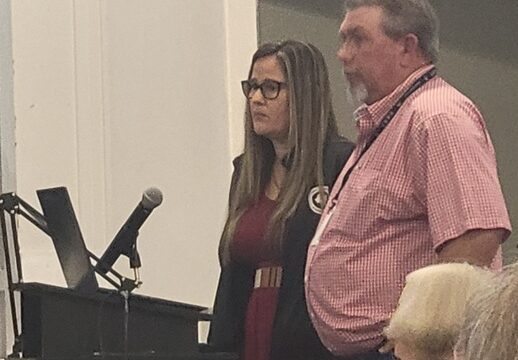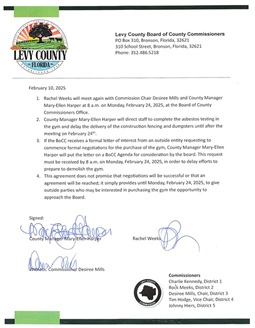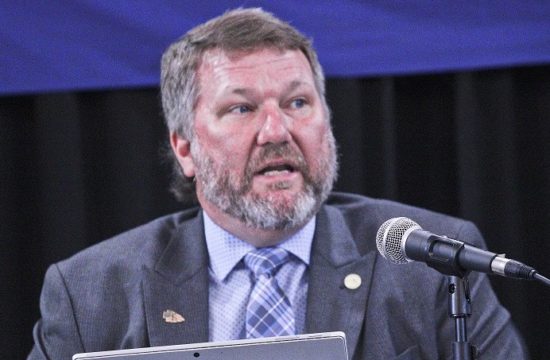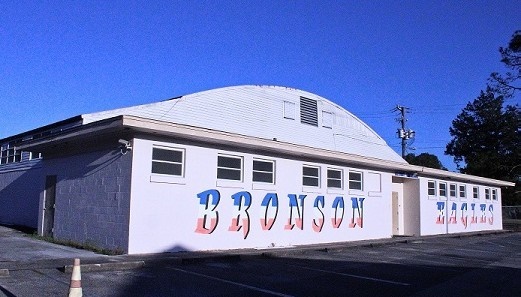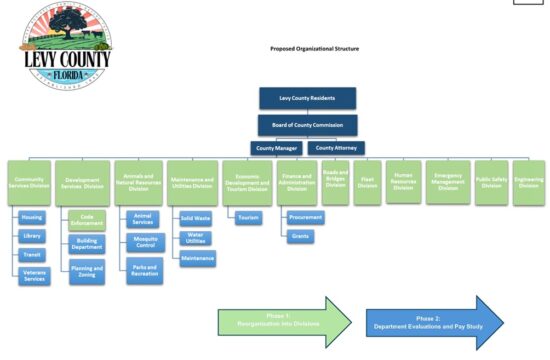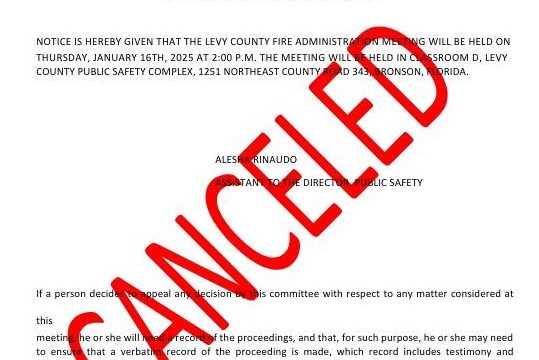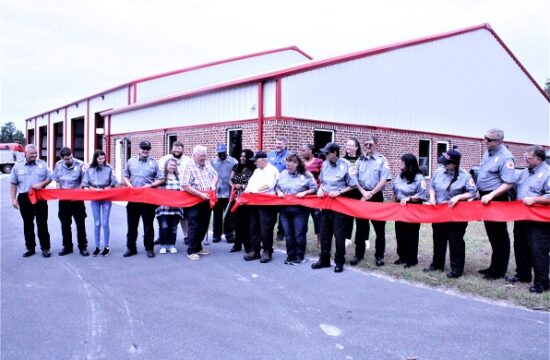By Terry Witt – Spotlight Senior Reporter
Levy County Commissioners are set to meet in a workshop on Tuesday, October 18 to discuss potential revisions to the Land Development Code, but the proposed monkey quarantine facility in Gulf Hammock, while admittedly a hot land use topic, isn’t scheduled to be part of the discussion.
The workshop begins at 6 p.m. in the Levy County Government Center at 310 School Street behind the Levy County Courthouse. The government center was previously used as Bronson High School before the school board sold it to the county commission for office space.
For the record, the county’s commission’s land development regulations apply only to unincorporated areas of Levy County – commonly referred to as the rural areas outside the boundaries of cities.
Planning and Zoning Director Stacy Hectus said she doesn’t want to get sidetracked talking about the monkey facility when it’s not really the focus of the workshop. She said county regulations say research labs are allowed only in industrial zones and only for research inside buildings.
The 1,400 acres that JOINN Biologics purchased in Gulf Hammock isn’t zoned industrial.
“When they called in the spring, I told them we allow research labs in industrial zoning currently and so they wanted to rezone that to industrial. I said that’s not going to be viewed favorably, and the term we use for that is called spot zoning,” Hectus said.
She said the China-based company desiring to operate a monkey facility in Gulf Hammock hasn’t applied for a permit or rezoning and hasn’t been in touch with county government since it purchased the Gulf Hammock land.
She said the subject could be brought up indirectly at the workshop when she asks commissioners how they would like to address situations when the state or federal government regulates certain types of land uses for such things as composting for example, or the keeping of exotic animals, and property owners act like they can ignore the county.
She thinks JOINN Biologics, the company that bought the land in Gulf Hammock, may try to skirt county regulations.
“My guess is they’re going to try to find a way around it. FWC ( Florida Fish and Wildlife Conservation Commission) isn’t a friend of ours sadly or as far as any of the other exotic animals or dangerous animals that may have been permitted around the county until we found out about it from residents. The residents told us, ‘why is there a 17-foot fence around this property’? Oh, it’s a rhino. We made contact with the state and asked the Levy County owners to get the appropriate local permits. They thumbed their nose at us and they said we already have our permits through FWC so why do we need a permit from local folks.”
“That will be brought up too. We are going to ask the board a big question. What do you want from us local folks if the state and federal governments already regulate directly?” Hectus said. “There are so many things that are state and federally regulated like composting for one; it is regulated strictly by the Florida Department of Environmental Regulation and Florida Department of Agriculture. I don’t know what we can do except establish buffers and setbacks. Sadly, once the state or federal government regulates something it ties our hands locally because we can get turned around and get a lawsuit filed by going against the higher divisions of government. The board needs to give us direction on what they want us to do in these situations where the state and federal governments regulate things.”
The main purpose of the workshop is to focus on different types of land uses – accessory uses, temporary uses, uses permitted by right, specifically regulated uses and uses permitted by special exception -that will be allowed in each zoning district and then reorganizing the land development code to make it more user friendly.
Regarding the composting issue, the county commission has expressed an interest in preventing Marion County horse farms from using Levy County as a dumping ground for horse manure. The dumping of horse manure could surface as a land use issue at the workshop. Hectus would like to get the board’s guidance on where this type of dumping would be allowed and under what circumstances since the state regulates farming and composting.
Does the county commission consider the dumping of piles of horse manure on agriculturally zoned land to be composting, if that’s what the property owner claims, or should there be local land use rules governing commercial composting operations? Can the county regulate commercial composting? Does the county have the expertise or the staff to regulate the issue and enforce the regulations? A couple of the dairies in Levy County use cow manure to generate electricity for their farms. Is that an option for disposing of large amounts of horse manure?
Farms that deposit manure on the surface of the land for composting sometimes draw the wrath of neighbors. The complaints revolve around alleged lack of sanitation and impacts on property values from odors and flies. Some farmers say manure smells like money to them. Those who have state authorization to compost manure, and who say they are following state rules for their composting operation, often believe they have done all they need to do to operate legally. Does the Levy County Commission have any control over commercial composting operations through its Land Development Code and Levy County Comprehensive Plan? If not, what’s the point of the Comprehensive Plan and LDC?
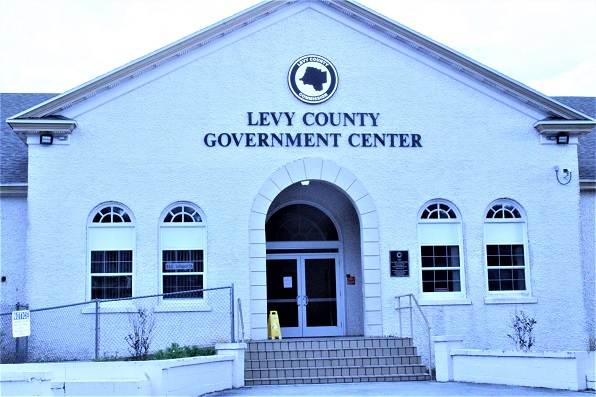
—————————–
Enterprise Reporting by Terry Witt October 13, 2022; Posted October 13, 2022



